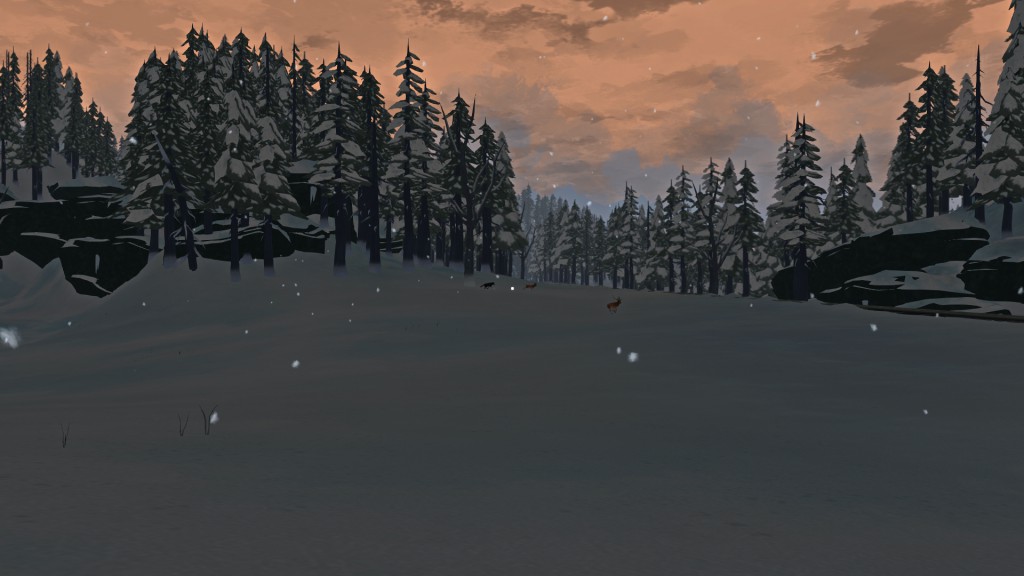Window to a different world
During my ongoing literature review I often discover interesting facts about things I’ve never thought about. Sometimes I can connect these facts with my own observations: The result is mostly a completely new idea why things are as they are. Maybe these ideas are new to you, too. Therefore I’ll share my new science based knowledge with you!
This week: This time, I think about potential reasons why virtual environments not necessarily work as permanent windows to a different world.
Normally, while playing a good computer game, I am totally immersed in the gameplay. The immersion is, in the case of a virtual environment that I really enjoy, often combined with a feeling of awe as it allows me to explore beautiful places. For instance, as I played The Long Dark, I was constantly in awe due to the beautiful virtual winterly landscape which reminded me of great days I spent outdoors during the winter time.

A typical The Long Dark scene.
Therefore, I expected a similar experience when I stay for a longer time at a certain position to just enjoy the fantastic scenery and use the computer screen as a window to a different and exciting world. Surprisingly, the immersive experience most of the time came to a quick end after I leaned back to just enjoy the beautiful view I have selected.
The reason for this phenomenon could have several reasons. The probably most likely explanation would be that, by stopping to actually play the game, the flow-inducing aspects of the gameplay ended and no longer supported the overall overwhelming experience of exploring an amazing landscape. As the excitement returned after I continued to play the game, it can be assumed that the break in flow also caused a break in the overall experience.
However, there are also other aspects that could play a moderating role for the break in the overall experience. By leaning back to just watch the scenery, I changed my personal point of view thus suddenly seeing the surrounding environment which potentially distracted me from the gameplay. If this is the case, the experience might last longer when I would use a Head-Mount Display instead of a regular computer screen as this would prevent me from suddenly being distracted from the outside world.
A third reason could be that, by stopping to actually playing the game, I was no longer completely focussed on the gameplay and, as a result of this, my mind and thoughts potentially started to drift and I no longer effectively enjoyed the virtual environment.
Finally, it could also haven been the case that I reached the point of having seen all aspects of the virtual environment as it is limited by the degree of the simulation. At some point, no new elements can be discovered as the virtual world only contains a limited amount of elements. This, in contrast, is not the case in reality, as every moment is unique and will never return.
In the end, this problem shows the current limitations of simulated virtual worlds as the technical development still has not reached the state of simulating a vivid and completely believable virtual world.